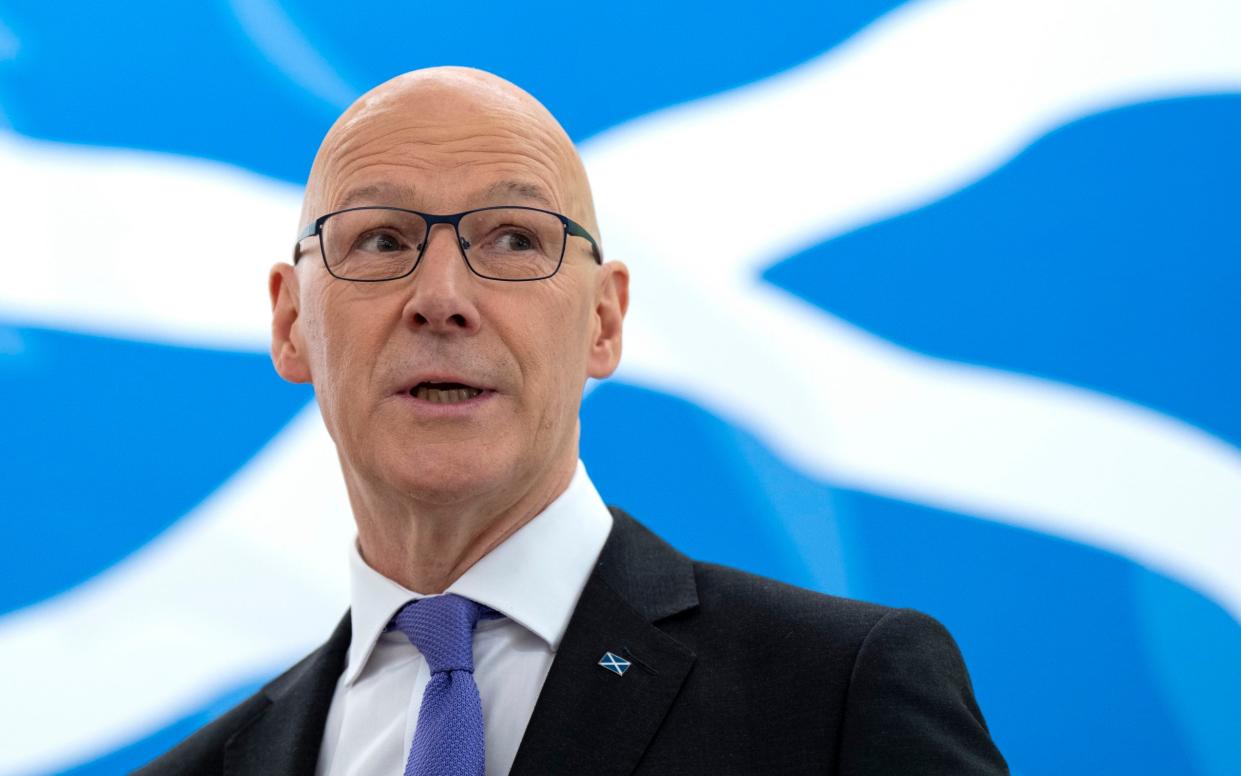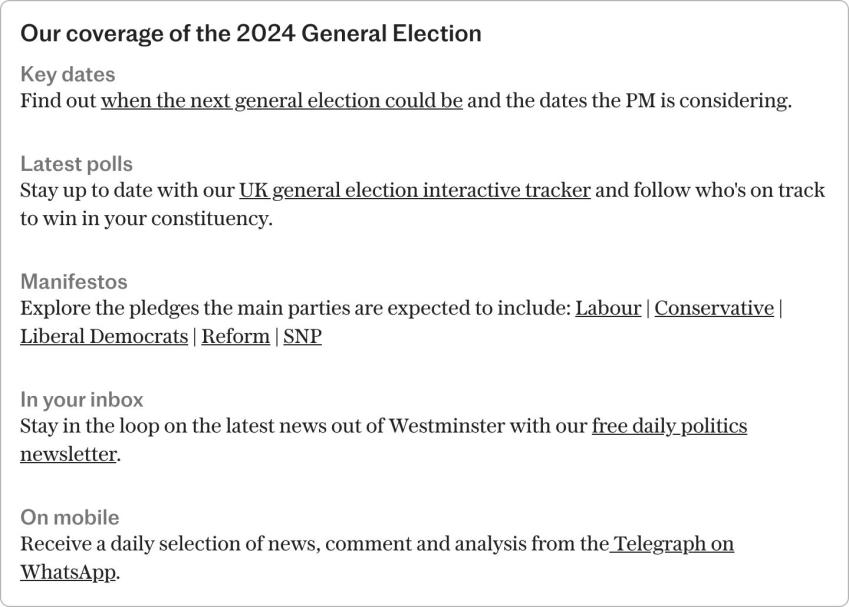John Swinney unveils discount broadband plan already offered by providers

John Swinney struggled to explain a major SNP election pledge to introduce lower broadband and mobile phone bills for the poor after it emerged the discount scheme already exists.
The First Minister used a campaign stop in Stornoway, in the Western Isles, to unveil proposals for a “social tariff” to lower broadband and mobile charges for the needy.
Announcing the pledge as a preview of the SNP manifesto being published on Wednesday, Mr Swinney said the plan would “help people get jobs, keep jobs and keep more of their hard-earned cash”.
But social tariffs for phone and broadband are already available from a wide range of providers for people claiming Universal Credit, Pension Credit and other benefits.
Ofcom, the industry regulator, has said these deals could save the estimated 4.3 million households across the UK who are eligible around £200 per year.
Challenged that he was announcing something that already existed, the First Minister told Sky News that the current scheme was “not in the comprehensive form that we need to have it”.
Asked a second time why he was unveiling a scheme that already exists, Mr Swinney said: “We’ve got to make sure that’s got the range and the scope to make sure it reaches everybody that needs to be supported by such a tariff in our society.”
Mr Swinney also said the SNP would bring in a social tariff for energy that could halve bills for the disabled, elderly or poor. The party claimed the total cost of the social tariffs would be about £7.8 billion per year.
In his speech, the First Minister said it would be funded from a combination of general taxation and “by top slicing the profits of energy companies” but provided no breakdown of the figures.
“That simple measure would make a massive impact in places like Stornoway – but the principle should apply to more than just energy,” he said.
“Connectivity – fast broadband and good mobile phone connections – are critical to modern life. In fact, in rural Scotland and the Isles, it is critical to the whole future of the economy.
“As more and more people work from home at least part of the week, often you literally cannot do your job without a decent internet connection.
“That’s why, to help people get jobs, keep jobs and keep more of their hard-earned cash, there should be a social tariff for broadband and mobile charges too.”
But Liz Smith, the Scottish Tories’ shadow finance secretary, said: “Everybody wants to see lower energy bills but the way to do that is not to make hardworking Scots pay more and hammer the North Sea oil and gas industry, which would put jobs at risk.
“This proposal for a half-priced tariff is a half-baked idea that might sound good on paper but, in reality, it would just see Scots paying even more in tax and do huge damage to our economy.”


 Yahoo News
Yahoo News 